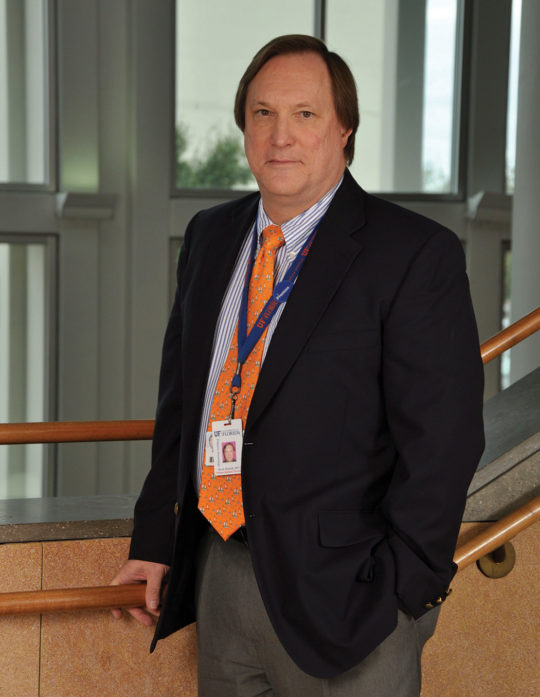Mark Hudak, M.D.
Mark Hudak, M.D.
Professor & Chair of Pediatrics
College of Medicine – Jacksonville
2019 Awardee
Mark Hudak’s research focuses on improving the clinical outcomes of vulnerable newborn infants.
More specifically, his research focuses on the developmental changes in cerebral blood flow and metabolism in fetal and newborn sheep. His interests have transitioned these applications to the field of heart and lung physiology clinical research in newborn infants.
The DINE study effort, funded by the NIH through 2023, involves long-term follow-up of infants enrolled in a number of study cohorts. It is one of Hudak’s most prominent examples of present and continuing work.
He is also participating in a Phase II multicenter study that will test whether a probiotic produced in accord with FDA guidelines will be safe and effective in preventing necrotizing enterocolitis (NEC) in more than 2,000 infants born prematurely. The disease occurs in premature infants, destroying bowel tissue; there is currently no cure. This study in particular aims to determine whether or not probiotic administration is an effective means of treatment.
Currently, there are no FDA-approved probiotic treatments available over the counter as their usage has led to infectious complications in babies.
Hudak was the chair of the American Academy of Pediatrics Committee on Child Health Financing from 2014-2018. During his time as chair, he was the senior author on a variety of statements, including alternate payment models for pediatric medical cases and an innovative approach to improving family preparedness at the time of pediatric patient’s discharge.
Hudak is also a member of the AAP Committee on Drugs, spearheading a revision of the clinical guidelines for Neonatal Drug Withdrawal in 2012. This shaped research and quality efforts in the ensuing years. As a recognized leader in his field, Hudak was elected chair of the AAP Section on Neonatal-Perinatal Medicine (SONPM) for the 2018-2020 period, adding to his duties as a member of the organization’s quality task force. Hudak has also published 30 peer-reviewed publications since 2013 and is a part of seven ongoing research projects.


